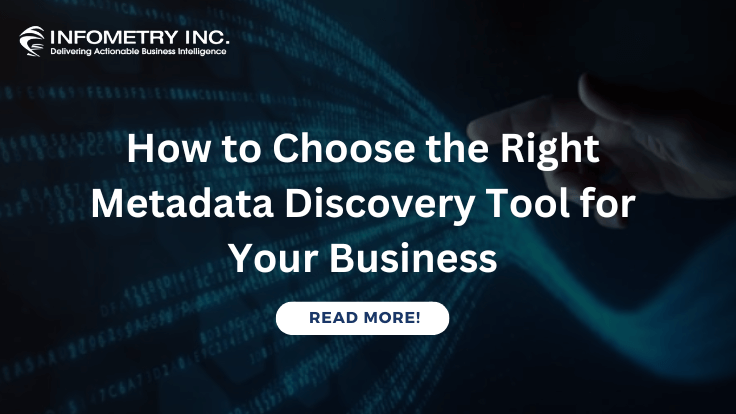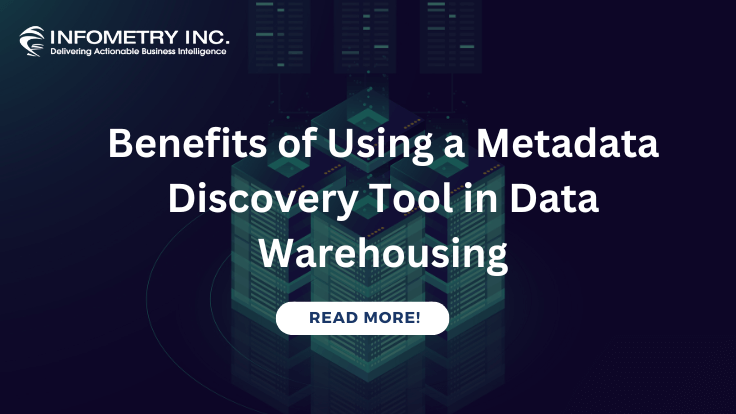
The Science of Data Analytics: Illuminating Business Potential
December 22, 2023
Why Should Customers Choose Snowflake In 2024?
December 27, 2023The world of data is vast and ever-expanding, fueled by the relentless growth of big data. This poses a significant challenge to traditional Extract, Transform, and Load (ETL) tools like Informatica. Can they adapt and thrive in this new landscape, or will they be swept away by the big data wave?
The Big Data Dilemma for ETL Tools
ETL tools have traditionally excelled at structured data, neatly organized in rows and columns. But big data is different. It’s messy, unstructured, and often resides in diverse sources like social media, sensors, and IoT devices. This complexity strains the capabilities of traditional ETL tools, leading to:
1. Performance bottlenecks:
Trying to process massive volumes of unstructured data can overwhelm ETL infrastructures, causing delays and hindering real-time insights.
2. Limited data processing capabilities:
Many ETL tools lack the advanced analytics and machine learning capabilities needed to extract value from diverse big data sources.
3. Inability to handle real-time data:
Big data often demands real-time analysis, which traditional ETL tools struggle to handle, making them less relevant for modern data pipelines.
Evolving to Survive: How ETL Tools are Adapting
Recognizing these challenges, ETL vendors like Informatica are innovating to stay relevant. Here are some key trends:
1. Cloud-native architecture:
Embracing the cloud’s scalability and flexibility is crucial for handling big data volumes. Informatica’s Cloud Data Integration platform is a prime example.
2. Hybrid capabilities:
Bridging the gap between on-premises and cloud data is essential for many organizations. Informatica offers hybrid solutions that cater to this need.
3. Enhanced data processing:
Integrating advanced analytics and machine learning capabilities directly into ETL tools is becoming commonplace. Informatica’s CLAIRE engine is a step in this direction.
4. Real-time data pipelines:
Streaming data integration capabilities are being built into ETL tools to enable real-time analysis and decision-making. Informatica’s Enterprise Data Warehouse (EDW) now offers real-time data warehousing.
Beyond ETL: The Rise of ELT and Data Lake houses
The future may not solely belong to traditional ETL. New approaches like Extract, Load, Transform (ELT) and data lake houses are gaining traction:
1. ELT:
This approach flips the script, loading data into a data lake first and then transforming it as needed. It’s more flexible for big data but requires robust data governance and quality management.
2. Data lake houses:
These combine the storage flexibility of data lakes with the structure and governance of data warehouses, offering a sweet spot for managing both big and structured data.
Informatica and the Future: A Seat at the Big Data Table?
Informatica is actively adapting, but the competition is fierce. Cloud-native platforms like Snowflake and open-source tools like Apache Airflow are vying for market share. To stay ahead, Informatica needs to:
1. Continuously innovate:
Invest heavily in R&D to stay ahead of the curve in big data processing and analytics.
2. Embrace open source:
Collaborate with open-source communities to leverage innovation and avoid becoming siloed.
3. Prioritize user experience:
Make its tools more user-friendly and accessible to a wider range of data users.
The Big Data Future: Collaboration and Co-existence
The future of data management likely won’t be a winner-takes-all scenario. Instead, we’ll see a co-existence of different approaches:
1. Traditional ETL tools:
Still relevant for structured data and simple transformations.
2. ELT and data lakehouses:
Ideal for big data analytics and flexibility.
3. Hybrid solutions:
Combining the strengths of various approaches for complex data landscapes.
Informatica has the potential to thrive in this diverse ecosystem. By embracing innovation, collaboration, and a user-centric approach, it can secure its place as a valuable player in the evolving world of big data. The future of data management is exciting, and Informatica has the opportunity to be a part of the exciting journey.
Remember, the key to success lies in understanding your specific data needs and choosing the tools that best fit your big data landscape.




